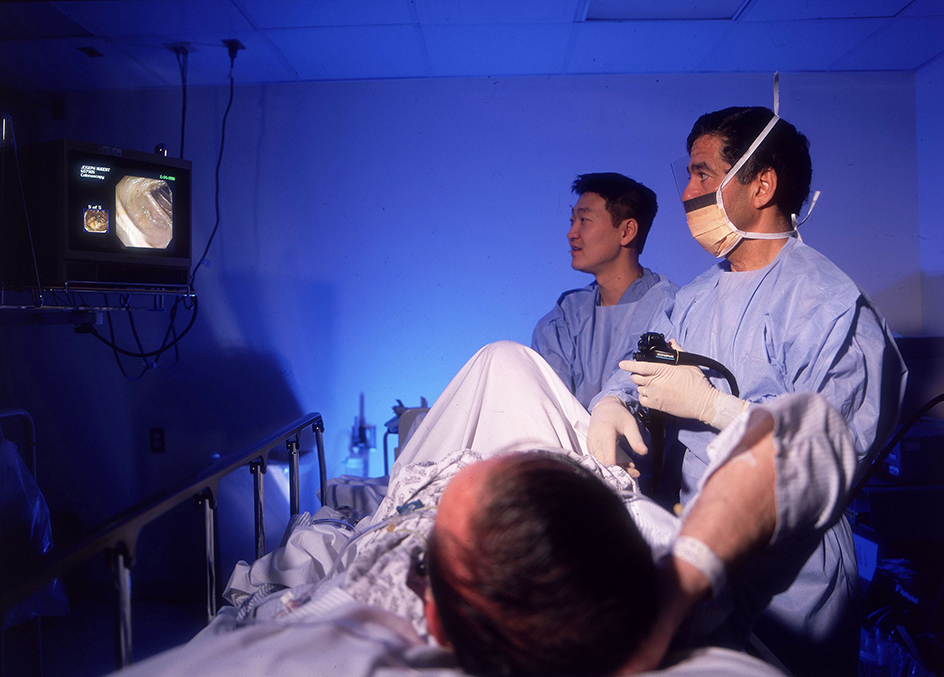Colon cancer is the common name for an uncontrolled division of cells in the large intestine. Many doctors prefer the term colorectal cancer, because the disease most often affects the main part of the large intestine, called the colon, and the last part, called the rectum.
Colorectal cancer is one of the most common cancers in North America and Europe, but it is relatively rare in Asia and Africa. The difference may be due to regional variations in diet. Studies show that people may help avoid this disease through a diet that is low in fat and rich in fruits and vegetables. Other studies suggest that small doses of aspirin at least every other day may also help prevent colorectal cancer.
Conditions that inflame the intestine, such as ulcerative colitis, increase a person’s risk of developing colorectal cancer. People who have family members with that type of cancer also have an increased risk. Scientists have identified abnormalities in particular genes (the hereditary material in cells) that are associated with some rare forms of the disease. Experts believe that many common types of colorectal cancer also involve genetic abnormalities. Cancer often arises in polyps, small noncancerous growths in the intestine. A tendency to develop polyps is probably influenced by genes, as well.
In its early stages, cancer in the right side of the large intestine may not cause noticeable symptoms. Cancer that develops in the left side of the colon or the rectum often affects an individual’s bowel habits. People should see a doctor if they experience any change in the frequency of their bowel movements or pain while having a movement. Stools (solid body wastes) that look unusually narrow or appear to contain blood should also be evaluated.
Many doctors recommend that middle-aged people have routine tests for colorectal cancer. Doctors often give such patients special kits to collect tiny samples of stool as part of their regular checkups. Laboratories test these samples for microscopic amounts of blood, which may indicate cancer. Periodic examinations that enable doctors to see inside the intestine are also recommended. During this examination, called a colonoscopy, doctors can obtain samples of suspicious tissue, which can be checked under a microscope for cancer cells.

Most patients whose cancer is confined to the intestine have the growth surgically removed. They may also receive radiation therapy or chemotherapy (treatment with drugs). These patients have an excellent chance of being cured. Patients whose cancer has spread beyond the intestine usually have surgery, supplemented by radiation therapy or chemotherapy.
